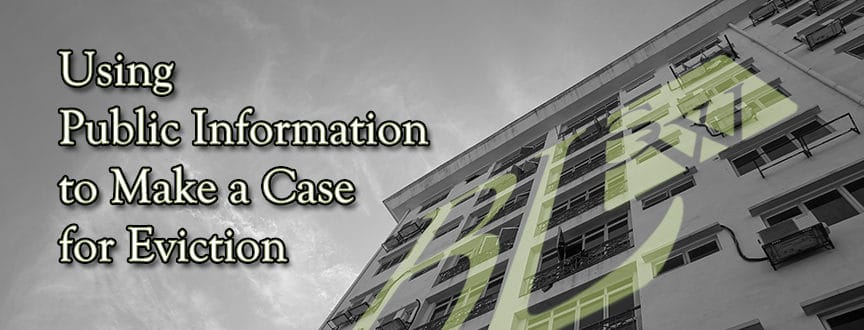While the most popular reason for eviction might be failure for a tenant to pay rent, there are other reasons that may justify a landlord starting the eviction process. Perhaps the tenant has a pet at the property when the lease has clearly indicated it is not allowed. Another example may be that the tenant has caused or is causing physical damage to the property. Arguably the most troubling problem with a tenant may be that of bad behavior. That is, the tenant is conducting themselves in a way that is upsetting the neighbors. Perhaps they are loud or disruptive. In worst cases, they may be breaking the law by participating in illegal activities at the property such as selling or manufacturing drugs.
Every state has their own laws and rules around evicting tenants.
However, regardless of the state, one should be prepared to put a case together that demonstrates the tenant is failing to uphold their end of the lease agreement. Collecting factual, documented information from a third party is the best way to go about doing this. Obviously, if the tenant has failed to pay rent, the lack of payment is the proof the contract has been broken. Proving damage to the property will require the land lord to document the damage via photographic proof, repair estimates and bills. (This is also why it is important that the tenant sign off that the property is in good condition when they move in.)
Proving disruptive behavior or illegal activities will require professional investigative work.
A good place to start is public records. In New Mexico, via IPRA (Inspection of Public Records Act, NMSA, 1978), reports can be requested that document police dispatch calls to the property in question. These reports will allow a landlord to document how often calls have been made regarding activity at the property whether it be noise, trash or illegal activities. Associated Police reports can be gathered through this process as well. Using IPRA or Public Records helps the landlord put together solid, documented evidence that has been authored by a reliable 3rd party, in this example, the police department.

Requesting Public Information can also be done anonymously.
Depending on the type of material being requested, the requestor may have reasons for not wanting to announce they are requesting certain documents. If anonymity is important, or perhaps you know the information you want but are just unsure where to request it from, a lawyer can be helpful. If a lawyer requests the information on behalf of a client, due to employee-client privilege, they do not have to disclose who they are requesting the information for. Also, lawyers who are familiar with the process for information requests are less likely to have their written requests denied for being over burdensome or broad. Lawyers familiar with the process know how to be specific and targeted in their requests.
If you need some specific public information or would like to speak with a legal professional about what is needed to successfully evict a renter in New Mexico, Contact us or give us a call at 505.848.8581 today. We’re here to help.






